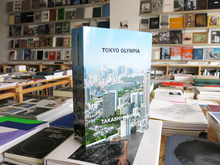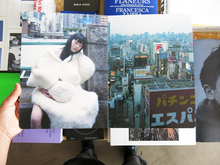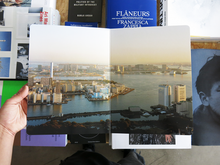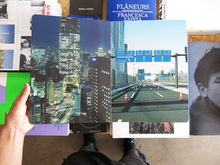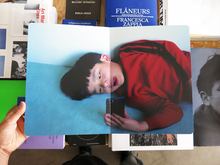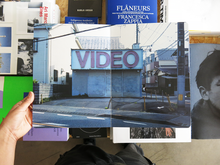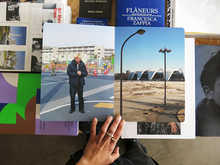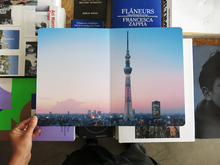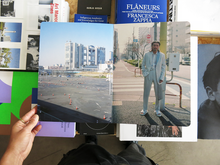
Tokyo Olympia is a continuation and reinterpretation of Takashi Homma's seminal book Tokyo Suburbia. Over six years Homma photographed the ever-changing Tokyo landscape and the unchanging Tokyo cityscape in preparation for the Tokyo 2020 Olympics. The book features images that capture the sheer scale of the megalopolis of Tokyo. One of the sites is the old National Stadium showing it's transformation to the new National Stadium or the Tsukiji Market just before the relocation to Toyosu Market, the ever-changing buildings and vast vacant lots of Tokyo Bayside.
Takashi Homma is one of the most internationally recognised Japanese photographers active at the front lines of contemporary photography today. Homma’s photography, possessing a uniquely cool gaze that rejects any sentimentality and portrays its subject with a characteristic sense of distance and cool tonality, has received acclaim not only in the world of photography but also contemporary art. Homma, who started out in advertising and fashion magazines in the late 1980s, moved to London in the early 90s taking work for legendary cultural magazines like i-D, and came to know there a few photographers who produced their own works by diverse methods. Upon his return to Japan, while making magazine media his foundation as a photographer representative of the 90s, his own photographic works capturing the landscape and people of Tokyo’s suburbs were published together in Tokyo Suburbia which was awarded the Kimura Ihei Commemorative Photography Award in 1999. Since then, he has continued to exhibit his innovative work both overseas and domestically and attracted subsequent generations of photographers.
100 pages, 21.5 x 28.8 cm, board book with rounded corners, Nieves (Zurich).
Takashi Homma is one of the most internationally recognised Japanese photographers active at the front lines of contemporary photography today. Homma’s photography, possessing a uniquely cool gaze that rejects any sentimentality and portrays its subject with a characteristic sense of distance and cool tonality, has received acclaim not only in the world of photography but also contemporary art. Homma, who started out in advertising and fashion magazines in the late 1980s, moved to London in the early 90s taking work for legendary cultural magazines like i-D, and came to know there a few photographers who produced their own works by diverse methods. Upon his return to Japan, while making magazine media his foundation as a photographer representative of the 90s, his own photographic works capturing the landscape and people of Tokyo’s suburbs were published together in Tokyo Suburbia which was awarded the Kimura Ihei Commemorative Photography Award in 1999. Since then, he has continued to exhibit his innovative work both overseas and domestically and attracted subsequent generations of photographers.
100 pages, 21.5 x 28.8 cm, board book with rounded corners, Nieves (Zurich).








